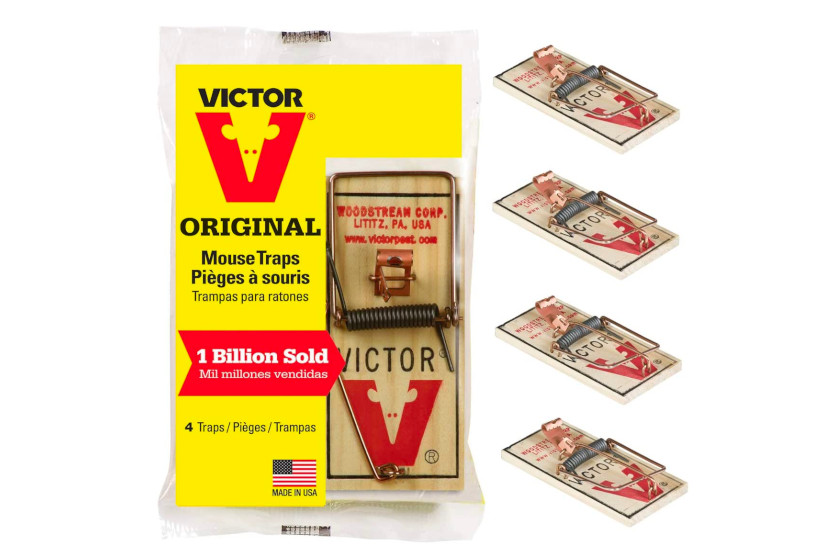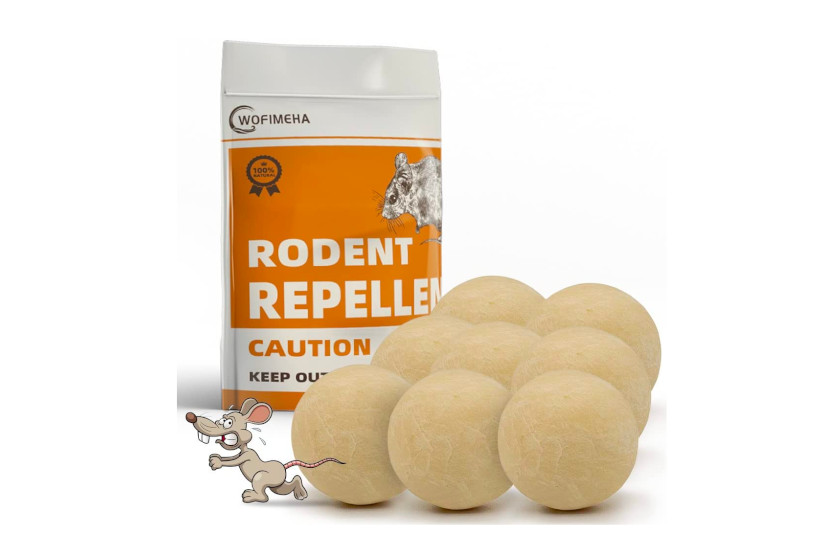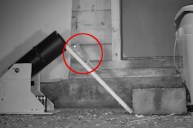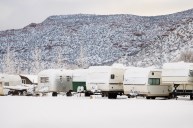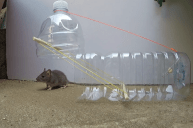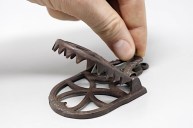As much as we like RVing, it can be incredibly frustrating when you're dealing with a mouse infestation in your camper. Don't worry, it happens to most RV owners at some point. These critters are not only disgusting, they also can cause a whole host of issues if they go undiscovered for a long time. When they leave poop everywhere, it can cause unsanitary conditions. But mice also love to gnaw on electrical wires and squeeze into electronics or other sensitive systems in your RV.
In worst-case scenarios, they might tear up curtains or upholstery in their quest for nesting materials. Today, we'll tell you how to get rid of an infestation in an RV, and we'll discuss some of the optimal preventive measures that will keep them out in the first place.
Editor's note: Products featured on Wide Open Spaces are independently selected by our editors. However, when you buy something through our links, we may earn a commission.
Ways to Clear an Infestation
Perhaps your RV has been sitting for a long time. Maybe you just purchased a used RV that's been sitting in a wooded area without being checked for a long time. No matter the situation, before you can start mice-proofing an RV, you need to end the current infestation. Our top recommendation is simply good old-fashioned snap traps. Dab a little bit of peanut butter on the trigger and place them in cabinets, on the floor, or wherever you're seeing mouse droppings.
Another option would be simple glue traps, or smaller humane traps. Whatever method you use to deal with the mice, you want to ensure they cannot run off. Using poison isn't a great idea in an RV because there's a chance the mouse could get into the wall, the ceiling, or under the floor before it dies. If that happens, then you must tear parts of the camper apart to find it. And trust us, you'll know it when the stench of a rotting dead mouse starts wafting through the vehicle.
Whatever you do to get rid of mice, don't assume there's only one. Keep resetting your mouse traps until you're not catching any more and the signs of the infestation stop. For campers that have been sitting for years, it could take a long time to deal with a mouse problem. Once all of the mice are dead, wash any surfaces and areas where they were living with hot water and soap. Put some extra emphasis on countertops and food storage areas, because you don't want pathogens and bacteria from the rodents getting on your food.
Keeping Mice Out of the Camper
Whether you're cleaning up an RV just out of storage or you bought a new one and are looking to be proactive in keeping rodents out, there are several things you can do. My folks bought a nice travel trailer about a year ago and have been extremely successful in keeping mice out. First, they keep the trailer parked in the driveway far away from trees and other buildings. This limits potential entry points since the mice would have to climb the tires—which are covered over during the winter months, making it even harder to climb up.
Along the bottom of the camper, they hung solar-charged lights that act as an initial mouse deterrent. The rodents instinctively avoid more-well-lit areas. Inside the camper, they use Wofimeha rodent repellent in select areas. This repellent uses a mixture of cotton, peppermint oil, and cornmint oils, which mice do not like. Because they're mostly natural ingredients, there's no worry about putting these in your pantry or cupboards. If you've already had an infestation, we suggest placing them in the areas that had been the most problematic in the past. So far, this has helped keep my parents' trailer mouse-proof. However, I recommend going into the camper every so often to ensure your methods are working during the winter.
In addition to commercial mouse repellents, you can also make your own. Some people like to simply soak cotton balls in peppermint oil and then place them in key areas of the trailer or motorhome. Another method is to buy an ultrasonic mouse repellent device that emits high-frequency sounds only rodents can hear. These have the added benefit of keeping out bugs. The downside is that they need to be plugged in to function, so they're not the best option if you are putting your RV in a storage area. Still other options are mothballs or dryer sheets.
Another solid practice is to remove most of the items from your camper if you don't plan to use it for a while. Take out all of the food that could serve as an attractant. You can also remove things such as clothing, paper towels, and toilet paper that mice may rip up for nesting materials.
Other Ways to Keep a Camper Mouse-Free
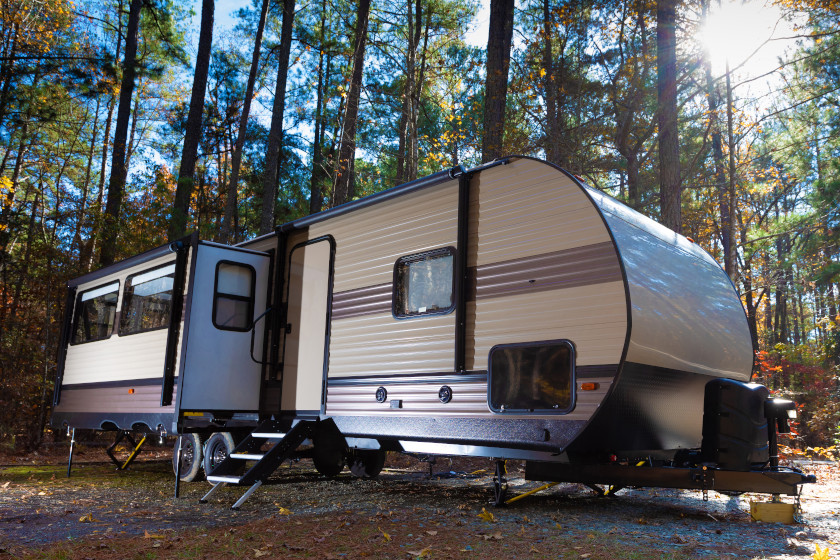
gsagi via: Getty Images
Aside from adding some internal deterrents against mice, it's important to take some extra precautions outside the RV, too. Even before taking it out to your favorite park or campground for the first time, spend some time examining the underside of the rig. RVers should look for even the tiniest of cracks that may lead to the camper's interior.
When you do find a potential entry point, it is best to seal it up using caulk or an expanding spray foam. Another option is to seal it off with a wire mesh that the rodents can't chew through. Keep in mind that mice are incredibly flexible creatures. Most experts warn that an opening the size of a dime could be an entry point, especially if the mouse smells something good inside. It's best to not give them that opportunity.
It's true that filling in the gaps on an RV can be a long and tedious process, especially with a larger rig. But it's worth doing to avoid the potential headaches that come later with mice messes and damage.
For more outdoor content from Travis Smola, be sure to follow him on Twitter and Instagram. For original videos, check out his Geocaching and Outdoors with Travis YouTube channels.

